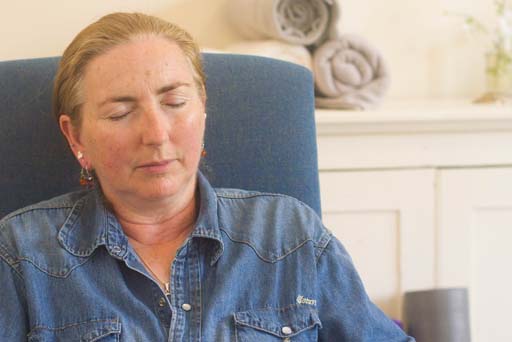2.9 Sleep problems and tiredness
Sleep and night-time problems are common in Parkinson’s and can be a side effect of medication. But keep in mind that these problems may have other causes than a person’s condition. For example, difficulty sleeping can be linked to other things, including drinking too much caffeine.
Not getting enough sleep can cause problems similar to the symptoms of depression – some people may feel confused or irritated. Lack of sleep also makes it more likely that the person will experience hallucinations or delusions. Parkinson’s symptoms might get worse when a person is tired.
Find out more in the Parkinson’s UK hallucinations and delusions information sheet [Tip: hold Ctrl and click a link to open it in a new tab. (Hide tip)] .
Insomnia
Symptoms of insomnia are common in most long-term conditions. People with Parkinson’s can be more prone to insomnia because of Parkinson’s symptoms, such as restless legs syndrome, that can disturb sleep.
Side effects of medications such as selegiline can act as stimulants and keep people awake.
Treating insomnia
If you work with someone who suffers from insomnia there are treatments that can help them to manage and deal with this problem. Their GP may also be able to refer the person to a psychological practitioner.
Psychological treatments for insomnia look at making helpful changes to habits and feelings that may affect our sleep. Some examples of simple night-time routine changes that can help your clients include:
- following the rules of good ‘sleep hygiene’ (for example, avoiding drinks containing caffeine or alcohol four to six hours before bedtime and keeping the bedroom calm, comfortable and cool)
- spending less time in bed awake
- going to bed only when you feel sleepy
- going to bed and getting up at regular times
- avoiding worrying in bed.
Some causes of disturbed sleep are related to Parkinson’s itself or to the medication used to treat it.
Not getting enough sleep can have a big impact on someone’s day – think about a time when you didn’t get enough sleep and the impact that had.
Parkinson’s medication
Common Parkinson’s symptoms can get worse as the effects of medication start to wear off. These symptoms may include stiffness, tremor, pain and being unable to move and turn in bed (nocturnal akinesia). An increase or worsening of these symptoms could affect the ability of a person with Parkinson’s to sleep well.
If this happens, a person should speak to their specialist or Parkinson’s nurse about making changes to their medication. Some medications can provide constant treatment through the night.
Turning over in bed (nocturnal akinesia)
Turning over in bed can be difficult for people with Parkinson’s because of rigidity. If a person with Parkinson’s finds it hard to turn over in bed, they may need changes to their medication. They should also have a night-time care plan in place and, if appropriate to your role, you should check if they need any care for pressure ulcers. An occupational therapist may also be able to suggest aids to help people to turn over in bed, such as a bed lever.
Akinetic pain
Symptoms of akinetic pain include severe stiffness, fever, pain in muscles and joints, headache, and, sometimes, pain in the whole body.
Early morning dystonia
Dystonia is an involuntary muscle contraction (for example, in the toes, fingers, ankles or wrists) that causes the body to go into spasm. This often occurs in the early morning as the effects of Parkinson’s medication wear off.
Restless legs syndrome
‘Jumping’ of the legs, arms or body during sleep is not uncommon in Parkinson’s. The effect is known as ‘periodic leg (or limb) movements’. Some people get it with restless legs syndrome, but it can happen on its own.
Restless legs syndrome is an irresistible desire to move the legs when a person is awake. People with Parkinson’s may get this during the evening and at night. Restless legs can cause discomfort at night for people with Parkinson’s, which can impact on sleep. It is common in people with Parkinson’s, although other conditions such as diabetes may also cause this problem.
Similar symptoms to restless legs syndrome can be caused by some Parkinson’s drugs or by drugs ‘wearing off’.
If you think a person is experiencing any problems with pain or restless legs, their medication regime may need to be adjusted. Their GP, specialist or Parkinson’s nurse should be able to help.
Nocturia
Waking up at night with the urge to urinate can be a common problem for people with Parkinson’s, although there may be other causes, such as a bladder infection. The GP, specialist or Parkinson’s nurse can work out the cause of nocturia and suggest ways to manage or treat it. A continence advisor can also help.
Low blood pressure or hypotension
You may notice that some people with Parkinson’s can feel light-headed and giddy if they try to stand up quickly (for example, when getting out of bed). A health professional can provide advice.
Panic attacks, anxiety and depression
Feelings of excessive worry or stress can cause sleepless nights. These symptoms can affect people with Parkinson’s. They are treatable and there are a number of ways this may be done. A health professional can provide advice.
Parasomnias
Parasomnias are abnormal movements or behaviours that happen when a person is sleeping, when they are waking up or when light sleep changes to deep sleep. They include nightmares and sleepwalking.
Some people with Parkinson’s may also experience hallucinations, wandering, agitation or may talk loudly during sleep. Night-time hallucinations can be a side effect of medication taken at night, or may be caused by something else, such as infections.
If a person experiences parasomnias, their GP, specialist or Parkinson’s nurse should be notified. In some cases a neurologist with a special interest in sleep disorders may be consulted.
Excessive daytime sleepiness
Drowsiness - in some cases, severe drowsiness - is a side effect of some Parkinson’s drugs. All Parkinson’s medications can cause excessive daytime sleepiness or sudden onset of sleep. This may be more likely to affect people with later stage Parkinson’s on multiple medications and when increasing medication, particularly dopamine agonists. (Dopamine agonists are a type of Parkinson’s drug. We will look at what they are in in detail in Section 4.)
People may also feel excessively sleepy during the day if they are not getting enough sleep at night. This can cause people to fall asleep or doze off during normal waking hours. In some cases, it can even lead to the sudden onset of sleep. If you see that this is a problem for your client, medication may help – you can seek the advice of a health professional.
Sleep apnoea
Sleep apnoea is a condition where a person momentarily stops breathing while asleep. This makes them wake up, take a few breaths and go back to sleep again. The person has no memory of this happening, because it’s so brief, but it disturbs their sleep.
Symptoms of possible sleep apnoea include loud snoring, choking noises while asleep or excessive daytime sleepiness. Seek advice from a health professional.
Sleep medication
If your client is having long-term problems sleeping, they may be taking or considering sleep medication, such as sleeping tablets. Their GP should be able to advise them about sleep medication.
Find out more from the Parkinson’s UK sleep and night time problems information.
Actions to take
- Recommend your client keeps a sleep chart. This can be taken to their next appointment with their specialist to assess their difficulties.
- Where appropriate, recommend keeping a call bell within their reach, so that they know help is at hand at night when it’s harder to move.
- They will need reassurance if they are experiencing nightmares. These can be very distressing.
- Make sure people have adequate pain relief.
2.8 Swallowing and saliva problems

